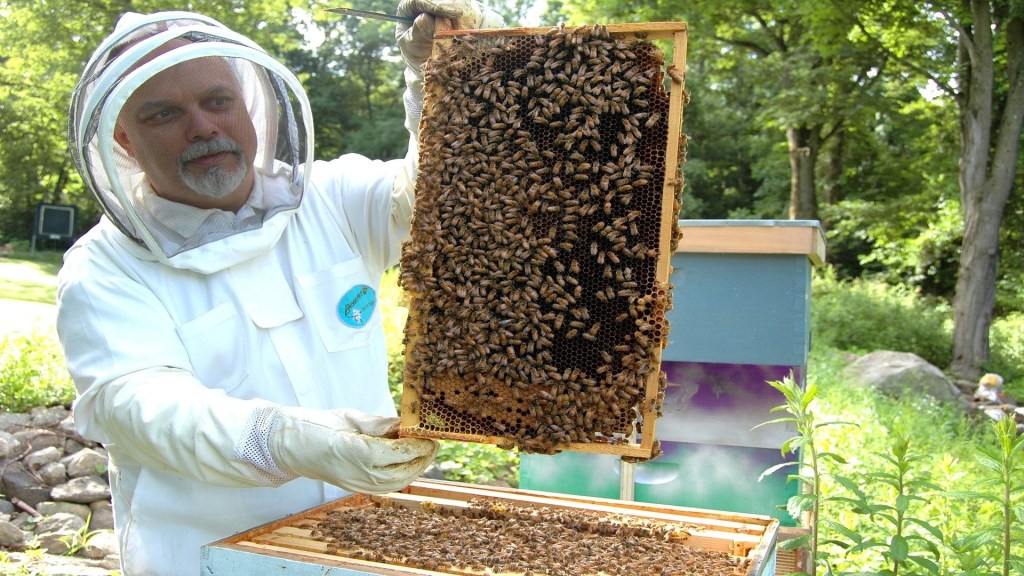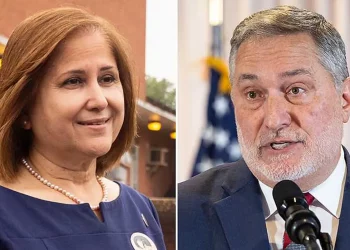In an effort to extend lifespans and fertility, the UK’s Advanced Research + Invention Agency is tapping into the queen bee’s royal ability to live longer for the benefit of humanity.
Due to her privileged DNA, the larger and more fertile queen bee outlives the workers. She lives an average of 1 to 2 years. The workers expire between 15-38 days in the summer and 150-200 days in the winter.
Though a known fact, “few studies have tried to elucidate the mechanisms that allow queen honey bees to achieve their long lifespan without sacrificing fecundity.”
It has long been believed, that the mix of royal jelly, antioxidants, and gut microbes, together, alchemized to extend her life. However, science has yet to explore the mechanisms of her superpower.
The queen bee study belongs to a larger, more ambitious project with an impressive £800m backing from the UK government that conducts high-risk research that might not succeed. However, if it did, it could change the world.
Yannick Wurm, one of the eight program directors, even called it “one of these wacky ideas” with the potential to transform our lives. Wurm manages several studies into insects for human use.
The queen bee might have the magic anti-aging mix
Insects such as ants, bees, wasps, and termites exhibit starkly different lifespans. Reproductive queens also live longer than their non-reproductive counterparts, according to a study published in Pub Med.
“Social insect species are promising subjects for the study of aging, in part because of their caste-specific life-histories and extreme lifespan differences, which provide the opportunity to identify naturally occurring candidate genes involved in aging.”
These specific traits sparked the curiosity of anti-aging researchers. If they could reverse engineer how nature has solved these challenges, they could possibly transform anti-aging, human fertility, organ transport and provide a new means of fighting disease, Wurm explained, as reported by The Guardian.
Last year, scientists transplanted gut microbes from queens into the worker bees, and it worked. It extended their lives. It turns out to be true; the queen possesses a special set of ingredients that prolong her life. Furthermore, they can reproduce that function in other bees.
The future of lifespan?
Several mechanisms for the phenomenon have been proposed. The most prominent, a couple of decades ago, were oxidative stress defenses, immunocompetence, and endocrine signaling, the study continues. Another study, published in 2024, examined the gut microbiota and even called the bees “natural models for aging research.”
The worker and queen bee develop from the same embryos. A divergence occurs based on how they are fed, thereby producing the mechanisms that enable queens to have a longer life, as per a study.
Insulin signaling might contribute to lifespan, as the inhibition of IIS pathway has worked in extending time. Existing studies have identified the magic mix to IIS, immune, and antioxidant pathways.
Ideas have been proposed and studies have been conducted in the past. The Advanced Research + Invention Agency’s initiative, backed by the government, demonstrates the real potential this anti-aging avenue might produce. It may be unconventional and risky, but this out-of-the-box idea has the potential to transform our lives — and the UK government is on board.
Maybe we’ll all live longer soon because the queen bee holds the secret.
The post ‘Wacky’ honey bees could whisper anti-aging secrets to humans appeared first on Interesting Engineering.




